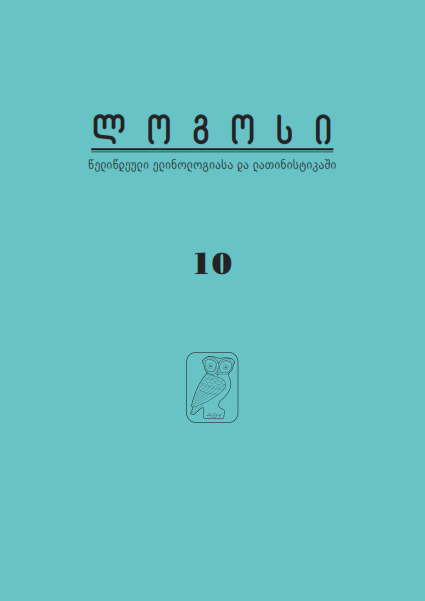ანტიკური ისტორიის საკითხები საბჭოთა პერიოდის სასკოლო სახელმძღვანელოებში
საკვანძო სიტყვები:
ძველი საბერძნეთი, ძველი რომი, საბჭოთა ისტორიოგრფია, სასკოლო სახელმძღვანელოებიანოტაცია
The main research topic of the present report is the issues of the history of antiquity in the school textbooks of the Soviet period. The report discusses all the school textbooks published in the Soviet period that dealt with the history of antiquity.
The main problem raised in the paper is related to the following issue, namely, how Marxist theory prevailing in the totalitarian state and it’s Leninist-Stalinist variations affected the Soviet scientific community and what was the influence of the Soviet conjuncture even on such a distant era as the history of antiquity.
The textbook is the main historical source for the work, therefore, we have used research methods typical for historiographical research. From a methodological point of view, the work is based on the method of historical cognition, which gives an opportunity to follow the development of the issue in dynamics. All the nuances of the guidelines are discussed in detail in the report. We resorted to hermeneutic and discourse analysis to identify the cultural and historical background against which the textbooks in question were written. We have used the methodology of comparative research, which allowed us to compare the historiographical differences between the textbooks.
A complex study of the textbooks revealed that the textbooks published in the 1930s were the most free from ideological dogmas. This can be explained by the fact that the Communist Party, which did not yet have a strong foothold and there was constant tension within the party itself, was still unable to fully control all areas of public life. There was, however, from the second half of the 30’s, the situation changed dramatically. Since then, school textbooks of the Soviet period, including those of the era farthest from Soviet modernity, have turned into a powerful propaganda tool in the totalitarian state.









